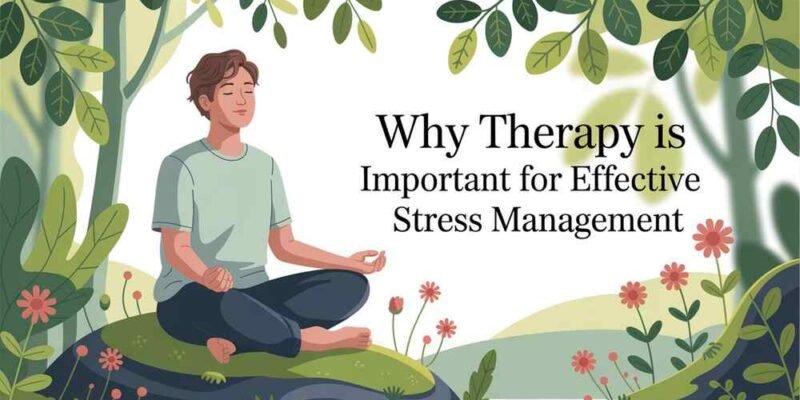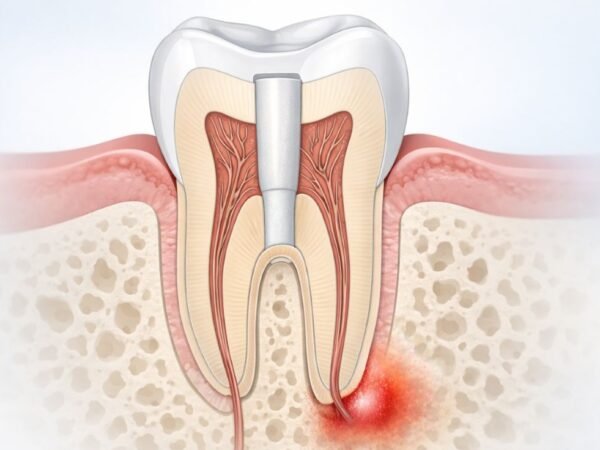Stress has become common in our fast-paced, modern world. It impacts every aspect of our lives and may impact our physical and emotional well-being. The role of therapy in these situations is vital. Effective stress management requires therapy because it equips individuals with the necessary tools, support, and understanding to cope with stress.
Recognizing Stress and Its Effects
Stress is our body’s reaction to perceived challenges and threats. In stressful situations, the body releases hormones such as adrenaline and cortisol to prepare for a fight-or-flight response. Short-term stress may be helpful, while long-term stress has detrimental consequences, including anxiety and sadness, weakened immune systems, high blood pressure, and sleep disturbances.
People often try to cope with stress on their own by ignoring it or by using unhealthy coping methods like excessive eating or drinking or avoiding it. Unfortunately, over time, these strategies tend to worsen the situation. Therapy is a better alternative because it addresses the root causes of anxiety and teaches effective coping mechanisms.
Stress Management Through Therapy
Therapy is a process in which a mental health counselor or professional therapist helps an individual explore their thoughts, emotions, and behaviors. It is a safe and confidential place to share concerns, gain insights about stress sources, and express them.
Stress Triggers: Identifying Them
The first step in therapy is to help the client identify the source of their stress. Triggers are often obvious, such as a demanding work environment or a complicated romantic relationship. However, they can also be subtler, like perfectionism or even negative self-talk. By recognizing triggers, people can start to understand the impact of their actions on their stress levels.
Healthy Coping Strategies
Therapists can help clients find healthier alternatives to unhealthy coping mechanisms. They may use relaxation techniques such as:
- Deep breathing
- Mindfulness
- Progressive muscle relaxation
To reduce overwhelm, therapy encourages the development of problem-solving and time-management skills.
Positive Thought Patterns and Negative Thinking
Stress can be exacerbated by negative thinking patterns such as self-criticism or catastrophizing. CBT is one of many therapeutic approaches that focus primarily on identifying unhelpful thoughts and changing them. Reframing negative thoughts can help people reduce anxiety and improve emotional resilience.
Enhancing Support Systems
Isolation can lead to loneliness and increased stress. Therapists often encourage their patients to strengthen social ties or improve communication in existing relationships. This support network is crucial for the long-term management of stress.
Other Benefits of Therapy Besides Stress Relief
Therapy for stress management has many benefits. While its primary objective is to reduce stress and its harmful effects, these benefits go far beyond the immediate relief. Therapy can help people:
- Enhance overall mental health: Effectively managing stress lowers the risk for anxiety disorders, depression, and burnout.
- Promote physical health: Stress reduction leads to improved sleep, better immune function, lower blood pressure, and better sleep.
- Enhance your self-awareness: Treatment helps you gain a deeper understanding of yourself, including your goals, values, and triggers.
- Enhance confidence: Successfully managing stress empowers individuals to tackle challenges with greater confidence.
Stress Management Therapy: When Should You Seek It?
Stress is something that everyone experiences, but not everyone needs therapy to cope with it. Stress can become overwhelming and persistent. Consider therapy if you:
- Stress affects daily life or relationships.
- You may experience physical symptoms, such as headaches or muscle tension.
- You may be using unhealthy coping methods.
- You may feel depressed, anxious, or emotionally numb.
- You find it difficult to sleep or relax.
Early intervention can help prevent mental illnesses from worsening.
The First Step to Stress Relief
It may be intimidating to some, but therapy is an essential step in the right direction. Having someone to talk to who is supportive can make a huge difference. It is important to note that therapy does not eliminate all stress. Stress is an inevitable part of our lives. However, it is about learning how to manage stress to minimize harm and maximize growth.
If you feel that stress is negatively affecting your quality of life, consider consulting a mental healthcare professional. Therapy can help you develop resilience, manage your emotional reactions, and enhance your overall quality of life.
Conclusion
Therapeutic intervention is crucial for effective stress management because it addresses the underlying factors, teaches individuals practical coping strategies, and promotes emotional well-being. By attending therapy, you invest in your emotional and physical health. This enables you to face life’s challenges with poise and assurance. Therapy may be a very effective tool for empowerment and healing if you suffer from stress.
Do Read: Where Comfort Meets Courage: Redefining Dental Visits













